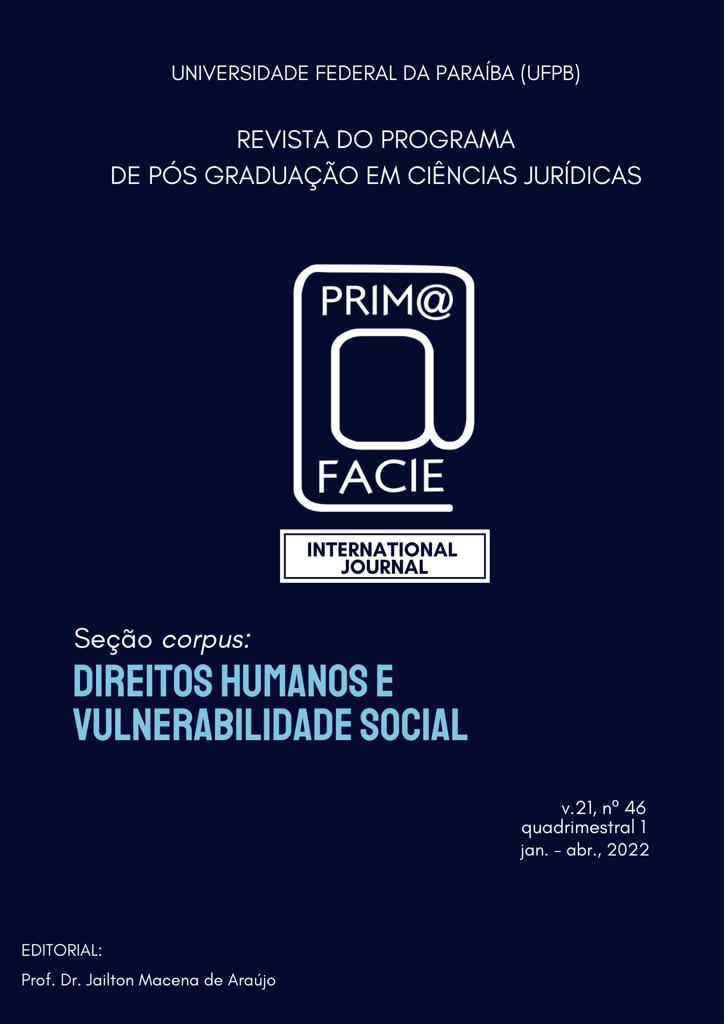Regency, Federalism And Regression: A View Up From Bernardo Pereira Vasconcelos
DOI:
https://doi.org/10.22478/ufpb.1678-2593.2021v20n45.50840Keywords:
Regency. Conservative Return. Bernardo Pereira de VasconcelosAbstract
The present research proposes to recover the trajectory of Bernardo Pereira de Vasconcelos, a prominent figure in the construction of post-independence Brazil, mainly for his performance during the Conservative Return. It analyzes the extent to which this movement, based on the safeguarding of order and the centralization of power, influenced the preservation of a unitary monarchical government in the face of the regional experience of decentralization of power. From 1839 onwards, the measures of conservative return represented an antagonism to the liberalizing and decentralizing measures in force until 1837, which highlights the theoretical relevance of the two periods in national historiography. The text also addresses the contribution of Bernardo de Vasconcelos as a State agent and jurist, in the formation of the constitutional thought of Brazilian lands. For the construction of ideas and work development, the method used in the present study constitutes a descriptive-analytical research design, through bibliographic and documentary research, reconstructing Vasconcelos' political-legal trajectory through his professional biography.
Downloads
Downloads
Published
How to Cite
Issue
Section
License
Copyright (c) 2021 A Prim@ Facie detém direitos exclusivos de publicação e distribuição sob concessão absolutamente franca da parte do autor, ou autores.

This work is licensed under a Creative Commons Attribution-NonCommercial-NoDerivatives 4.0 International License.
Os autores estão cientes de que transferem seus direitos de publicação e distribuição à revista Prima Facie. Os autores autorizam o uso do trabalho para fins não-comerciais, incluindo direito de enviar o trabalho em bases de dados de Acesso Livre. As provas finais poderão não ser enviadas aos autores antes da publicação, seguindo a revista seu padrão técnico explicitado nas suas normas e nos formatos praticados em acordo com a CAPES e com padrões de excelência adotados. As opiniões emitidas pelos autores são de sua exclusiva responsabilidade não sendo a revista solidária da livre opinião exposta por eles.

